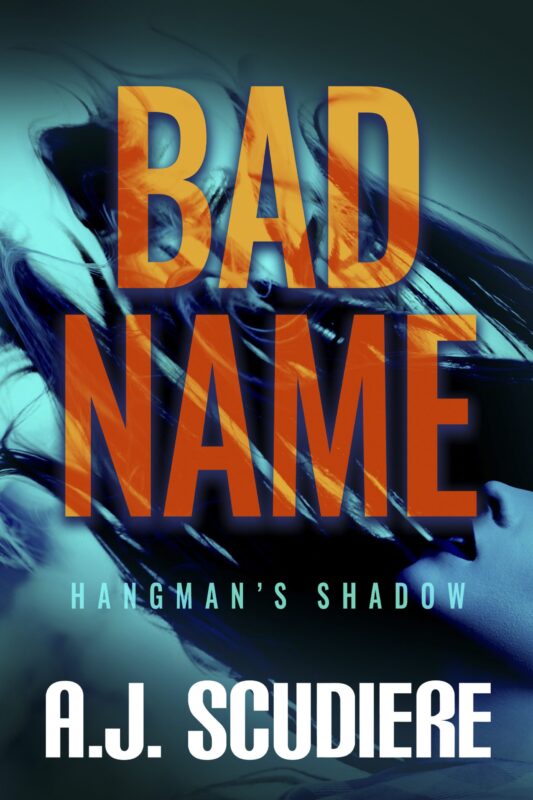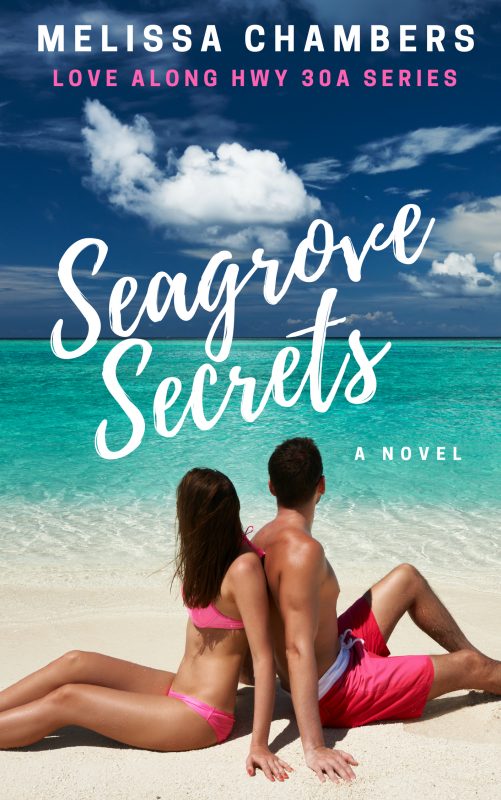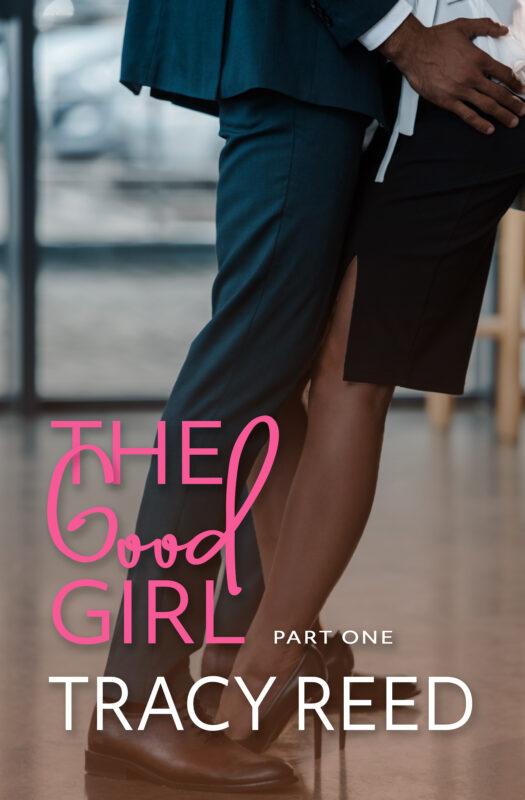Bookseller’s Corner
April 16, 2007 by A Slice of Orange in category Archives tagged as Booksellers Corner.
I HATE BOOKS AND THE CALENDAR!!!
.
By Michelle Thorne
.
Two weeks a year I am allowed by the Book Gods to hate books.
Last week was the spring portion of our game. We had our semi-annual book sale last Saturday. Yes, I know it was the day before Easter. I had to have the postcards printed twice, because the original ones had the sale on Easter too. How did I miss this?
In 25 years this has never happened, Easter has never fallen on my book sale. I blame global warming. It somehow changed the moon cycle, as I’m now told that Easter depends on the first full moon after something…I really wasn’t listening, but NOBODY SENT ME THE MEMO.
Suffice to say, I didn’t look at the calendar very carefully, I just looked at the numbers of the first full weekend in April. Why, you might ask?
Good question! Well, I’ll tell you, because I was surrounded by books, they were everywhere, they were multiplying at night when I went home. I would shelve them only to find more. They were like dirty dishes, just when you think the kitchen is clean, you find one more glass to wash, don’t you hate that.
I’m allowed to HATE housework all the time. It never gets finished. I’d rather just move to a nice clean house about every three months, but I hate moving too. Now I feel much better, the rant is over.
I don’t hate books anymore, all the unsold over stock just left via the back door to the West Covina Friends of the Library where they will be on sale again this weekend, the store is neat and pretty much in alpha order and just the way I like it, and my week of book hating is over.
I’m reading a really great ARC by Susan Kearney called Kiss Me Deadly, that’s one of the perks of being a Bookseller and loving it 50 weeks of the year. Am I one lucky girl or what?
WHAT ARE YOU READING?
Always,
Michelle
Michelle Thorne is the owner of Bearly Used Books…123, Home of A Great Read and OCC’s Media Director. For all your reading needs contact Michelle at:
Bearly Used Books…123
Home of A Great Read
123 So. First Street
La Puente, CA 91744
(626) 968-3700
Writer on the Verge
April 13, 2007 by A Slice of Orange in category Writer on the Verge by Kate Carlisle tagged as Writer on the Verge
What’s Wrong With Me?
As I write this, I am temporarily blind in my left eye from a migraine headache.
Naturally, I’m wondering why I didn’t simply shoot a quick email to let everyone know I wouldn’t be able to blog today. But that seemed like the wimp’s way out. I mean, I’ve been getting migraine headaches since I was a teenager, so if I’d cancelled every little thing over a stupid headache, I would’ve missed out on a lot of my life. So I pop a migraine pill and keep going.
But right now the pain is forcing me to take a good, long look at myself—which I really hate to do most of the time, but this weakened state forces me to endure that tiny part of myself that occasionally insists on self-reflection. So I go ahead and ask myself, am I so tied to my image of being a writer that I can’t pass up one opportunity to blog (i.e., blather about ME) in favor of taking better care of myself?
The short answer is clearly NO.
My need to show up for the Blog probably stems from that same part in me that is willing to persist in a business that does its best to reject me at every turn. It’s the same part that keeps me going year after year, the part that shrugs off the “R’ word, the part that gets excited about a new idea, a new contest, a new literary agency, a new trend. It’s the part that studies Publishers Marketplace every day to see what’s hot, what’s new, who’s sold, and it’s the part that keeps me sending my work out and keeps me at my desk, writing and re-writing and brainstorming and yes, blogging.
And I’m not the only one.
So why do we do it? Persistence? Patience? Insanity? All of the above?
It hurts to think about it too deeply right now, but whatever you call it, it’s that thing that keeps us going, keeps us writing, submitting and yes, blogging. Through headaches and rejections, we just keep going…and going…and going…
Hey, my headache’s gone!
Kate Carlisle is a Golden Heart Winner and American Title finalist who writes Romance, Mystery, and Young Adult fiction.
Pop Culture Courtship
April 11, 2007 by A Slice of Orange in category Archives tagged as Pop Cultureby Sara Black
 So what does Pop Culture have to do with romance?
So what does Pop Culture have to do with romance?
Unlike the heroines of my favorite novels by Austen and Heyer who were not allowed to have jobs, about four years ago I was lucky enough to work at a small post production house. Though I worked with many men, including a Frenchman and an Italian, there was very little romantic about the place. For starters, the Frenchman’s name was Igor.
One day my computer started acting up. The guy at my office who fixed these things emerged from his hiding place in the back room to sit in my chair and fuss with the electronics under my desk. We maintained an awkward silence, until a lull while he restarted lead him to discover an empty plastic sleeve for a comic book which I’d left sitting on my desk.
“What are you reading?” He asked.
“Sandman.” I said.
If our courtship had been more traditional we might have moved from comics to finer literature discussions, but us being us, we proceeded to discuss more comic books. I told him about the upcoming San Diego Comic Convention that I was going to attend. Simply put the San Diego convention center becomes a pop culture mecca filled with comic book readers, TV and movie watchers, artists, and geeks of all shapes and sizes. Finally, we discussed anime.
Rather than exchange missives we exchanged anime DVDs. He lent me the cyber thriller Ghost in the Shell and surreal coming-of-age FLCL, and I leant him the action packed Scryed. I even went and saw the low budget but well-made British horror film 28 Days Later, because he said it was good, and–trust me–that’s not a film I would normally see. Our first outing did have a co-worker as a chaperon, but instead of going to a museum, we saw Finding Nemo.
He was invited to my birthday, and my present was not a traditional teddy bear, but a Gloomy Bear, which proved to me we had a deep understanding. There was no waltzing at the party, but plenty of DDRing. I kicked his butt.
Then we stalled. Except for the birthday party and movie with the coworker we were still work friends only. The attraction was there but I was shy and he was acting shy and nothing passionate was going to happen at the office. I got up the courage to suggest that rather than just trading anime we actually hang out and watch something together, like at his place. He mentioned he’d been meaning to get a group of friends together to watch the kung-fu historical Hero.
A group of friends? I wasn’t looking for more chaperons.
I was deflated enough that it took a whole week before I tried again. This time I made it simpler. I asked him what he was doing that evening. That worked. Our first date was at a Shabu Shabu place. Our romance followed our courtship in style, and when we went out we went to Japanese pop culture stores like Giant Robot and when we stayed in we watched Sci-Fi channel shows like SG-1. Lest you think we live totally one dimensional lives I also introduced him to the six hour version of Pride and Prejudice, which he has sat through several times since.
The real end of the courtship phase didn’t come with a declaration of love on bended knee, but I’ve never seen anyone more touched than he when I moved my computer to his place.
So, what does Pop Culture have to do with romance? I’m not sure, but it had a lot to do with mine.
 Sara Black has a degree in Cinema/Television from USC. She watches far too much television, eats way too much sushi and is always writing a romance novel. For someone who religiously stays out of the mainstream, she knows an awful lot about Pop Culture. This is the second in a series of posts on the subject.
Sara Black has a degree in Cinema/Television from USC. She watches far too much television, eats way too much sushi and is always writing a romance novel. For someone who religiously stays out of the mainstream, she knows an awful lot about Pop Culture. This is the second in a series of posts on the subject.
When is it good enough?
April 10, 2007 by A Slice of Orange in category Archives tagged as A Writer's LifeAhem.
The other day I was nosing around online and came across a message posted from a writer who asked, “when do you know a story is any good? How do you know if its worth pursuing?â€
For me, it’s gut instinct. If the characters come to life and refuse to go away until I finish their story, then I know this is a journey I have to complete. I don’t judge if the story is “good” or “bad.” My agent does that for me. How I feel is that every story and character who has come into my life has done so for a reason.
Right after I turned in In Between Men (waaay back in September 2004), I wrote a drama about two sisters who never knew the other existed until their father was diagnosed with cancer. I loved the characters Dori and Sela, but the story was so so. I talked to my agent about it and she asked me what I was doing writing a heavy-handed drama when I’ve been publishing comedies? Unfortunately, she has an annoying tendency to be right and that story has since become an organ donor.
But I missed those sisters. Five or six months later, I was at a wedding and while eavesdropping on a conversation, found the story for Sela and Dori. Next month, “Till Death Do Us Part” will be inflicted on the reading public in Names I Call My Sister.
I’m not sure if I successfully answered this question. Perhaps some stories are meant to slip by the gatekeepers, or others are just the long way around to the real thing.
So I ask you: how do you know if your story is “good enough”?
 Mary Castillo is the author of the upcoming anthology, Names I Call My Sister (Avon A, May 2007) as well as In Between Men and Hot Tamara. She was once named one of the hottest 25 people in the OC by OC Metro Magazine. She keeps the certificate in a prominent place so her husband won’t forget. Her website is www.marycastillo.com.
Mary Castillo is the author of the upcoming anthology, Names I Call My Sister (Avon A, May 2007) as well as In Between Men and Hot Tamara. She was once named one of the hottest 25 people in the OC by OC Metro Magazine. She keeps the certificate in a prominent place so her husband won’t forget. Her website is www.marycastillo.com.It’s Worth It
April 9, 2007 by A Slice of Orange in category Archives tagged as It's Worth It.
Constructive Criticism Builds Bridges
At our last RWA meeting, some friends and I were discussing manuscript critiques. A good critique can help your manuscript become all you hoped for, while a bad critique can keep you cowering for months or years, afraid to let anyone see your work again.
When I was a member of the Tempe Christian Writer’s Club in Tempe, Arizona, we had two hard and fast rules for all critiquing. One, you must begin with something you genuinely like or appreciate about the work. Compliment a bit of dialogue, the originality of the setting, an interesting character. Try not to use banalities such as “I didn’t see a single spelling mistake.†The idea is to build up the writer and give him feedback on his strengths.
Two, when pointing out an area that needs work, you must give at least one or two ideas on how it could be improved. For instance, if the character feels flat and uninteresting, suggest ideas for rounding out the character – a nervous tic, a paradoxical personality trait, a stronger motivation. If you disagree with a “fact†– be it historical or otherwise – that you believe the writer got wrong, suggest that she double check it and let it go. This is not the time or place for you to “win†an argument.
Which leads to another great critique group idea. My screenwriting group has a rule that the author must not speak during the critique. Everyone talks as if he/she isn’t even there. The author makes notes on what everyone said, then at the end asks questions for verification purposes only. This is to prevent the age-old “defensiveness†problem. When you, the writer, listen to everyone discuss your work, you are taking an active role in figuring out what the readers “got†and what they didn’t. If they didn’t “get it†from reading your work, your explanations are meaningless – so keep them to yourself. Use your energy to figure out how to rewrite your piece so that the reader “gets it†in the next draft.
Consider using some or all of these rules in your critique group. And if you’ve found other critique group ideas that work, post them in the comments section to share with everyone. If you haven’t found a critique group yet, ask around. Perhaps you know someone who has room for one more, or you could start a new group.
It can be scary, no matter who you are or what stage in your career, to share your work with others and invite feedback. These rules can help keep a positive tone in the group, but remember you are responsible for both how you speak to others and how you choose to hear what others say to you. Choose to be the critique partner known for her encouraging words!
Putting yourself out there – as a writer and as a human being – can be tough. Sometimes it seems like a much better idea to stay home, alone but safe from the stone throwing. But when I think back on the friendships I’ve made and the amazing progress I’ve seen in my work, I say – it’s worth it!
NOTE: For OCC RWA members, please post a note on The Morning Juice if your critique group is open to new members, or if you’re looking for a critique partner or group. Be sure to note your location, proposed meeting times/days/frequency, whether it’s in person or online, and any other important information such as genre or if your group is for plotting only, etc. Remember – your group can arrive early at our monthly meeting and meet in the back! Take advantage!
Kitty Bucholtz writes romantic comedies because, well, she lives one! She wrote her first book in the NBC cafeteria, the second snowed in at a Reno hotel, and the third from a tiny apartment in Sydney. Even though she loves talking about, writing about, and teaching about writing, she’s pretty sure she knows at least three people who aren’t writers.
Affiliate Links
A Slice of Orange is an affiliate with some of the booksellers listed on this website, including Barnes & Nobel, Books A Million, iBooks, Kobo, and Smashwords. This means A Slice of Orange may earn a small advertising fee from sales made through the links used on this website. There are reminders of these affiliate links on the pages for individual books.
Search A Slice of Orange
Find a Column
Archives
Featured Books
THE CHRISTMAS PRESENT
HOW FAR WOULD YOU GO TO PROTECT THE ONES YOU LOVE?
More info →SEAGROVE SECRETS
With Shayla Harrison's dangerous ex leaving rehab and headed her way, she needs to find a safe house and fast.
More info →THE GOOD GIRL PART ONE
Gabriella Townsend is by all definition a "Good Girl." Her life is about to change.
More info →Newsletter
Contributing Authors
Search A Slice of Orange
Find a Column
Archives
Authors in the Bookstore
- A. E. Decker
- A. J. Scudiere
- A.J. Sidransky
- Abby Collette
- Alanna Lucus
- Albert Marrin
- Alice Duncan
- Alina K. Field
- Alison Green Myers
- Andi Lawrencovna
- Andrew C Raiford
- Angela Pryce
- Aviva Vaughn
- Barbara Ankrum
- Bethlehem Writers Group, LLC
- Carol L. Wright
- Celeste Barclay
- Christina Alexandra
- Christopher D. Ochs
- Claire Davon
- Claire Naden
- Courtnee Turner Hoyle
- Courtney Annicchiarico
- D. Lieber
- Daniel V. Meier Jr.
- Debra Dixon
- Debra H. Goldstein
- Debra Holland
- Dee Ann Palmer
- Denise M. Colby
- Diane Benefiel
- Diane Sismour
- Dianna Sinovic
- DT Krippene
- E.B. Dawson
- Emilie Dallaire
- Emily Brightwell
- Emily PW Murphy
- Fae Rowen
- Faith L. Justice
- Frances Amati
- Geralyn Corcillo
- Glynnis Campbell
- Greg Jolley
- H. O. Charles
- Jaclyn Roché
- Jacqueline Diamond
- Janet Lynn and Will Zeilinger
- Jeff Baird
- Jenna Barwin
- Jenne Kern
- Jennifer D. Bokal
- Jennifer Lyon
- Jerome W. McFadden
- Jill Piscitello
- Jina Bacarr
- Jo A. Hiestand
- Jodi Bogert
- Jolina Petersheim
- Jonathan Maberry
- Joy Allyson
- Judy Duarte
- Justin Murphy
- Justine Davis
- Kat Martin
- Kidd Wadsworth
- Kitty Bucholtz
- Kristy Tate
- Larry Deibert
- Larry Hamilton
- Laura Drake
- Laurie Stevens
- Leslie Knowles
- Li-Ying Lundquist
- Linda Carroll-Bradd
- Linda Lappin
- Linda McLaughlin
- Linda O. Johnston
- Lisa Preston
- Lolo Paige
- Loran Holt
- Lyssa Kay Adams
- Madeline Ash
- Margarita Engle
- Marguerite Quantaine
- Marianne H. Donley
- Mary Castillo
- Maureen Klovers
- Megan Haskell
- Melanie Waterbury
- Melisa Rivero
- Melissa Chambers
- Melodie Winawer
- Meriam Wilhelm
- Mikel J. Wilson
- Mindy Neff
- Monica McCabe
- Nancy Brashear
- Neetu Malik
- Nikki Prince
- Once Upon Anthologies
- Paula Gail Benson
- Penny Reid
- Peter Barbour
- Priscilla Oliveras
- R. H. Kohno
- Rachel Hailey
- Ralph Hieb
- Ramcy Diek
- Ransom Stephens
- Rebecca Forster
- Renae Wrich
- Roxy Matthews
- Ryder Hunte Clancy
- Sally Paradysz
- Sheila Colón-Bagley
- Simone de Muñoz
- Sophie Barnes
- Susan Lynn Meyer
- Susan Squires
- T. D. Fox
- Tara C. Allred
- Tara Lain
- Tari Lynn Jewett
- Terri Osburn
- Tracy Reed
- Vera Jane Cook
- Vicki Crum
- Writing Something Romantic
Affiliate Links
A Slice of Orange is an affiliate with some of the booksellers listed on this website, including Barnes & Nobel, Books A Million, iBooks, Kobo, and Smashwords. This means A Slice of Orange may earn a small advertising fee from sales made through the links used on this website. There are reminders of these affiliate links on the pages for individual books.











































